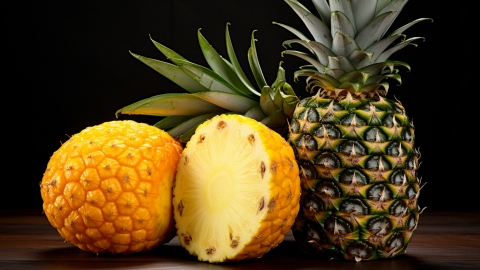Can you still eat a pineapple if it has turned into sugar core?
Generally speaking, whether a pineapple with a sugary center can still be eaten depends on the specific cause and condition of the change. If in doubt or if discomfort occurs after consumption, it is recommended to seek medical attention promptly. The detailed analysis is as follows:

If the sugary center in the pineapple results from high ripeness, and the flesh at the core only appears soft and slightly translucent without any off odors or signs of rot, and the fruit remains firm and elastic when pressed—without mushy or sticky areas—it indicates good quality and the pineapple is safe to eat. This type of sugary core reflects natural sugar accumulation, resulting in a sweeter, juicier taste that is ideal for those who prefer sweeter fruits. Simply remove the tough central core before eating.
However, if the sugary center is accompanied by mushy, leaking flesh, sour or alcoholic odors, blackened or sticky areas in the center, or visible rot spots on the skin, the pineapple has likely spoiled and should not be consumed. Spoiled pineapples may harbor large amounts of bacteria, which can irritate the gastrointestinal tract and lead to stomach pain, diarrhea, or other discomforts, potentially harming health.
When selecting pineapples, choose those with golden-yellow skin, slightly soft but springy when pressed, and emitting a mild fruity fragrance. Avoid unripe pineapples or those with damaged skin. Consume promptly after purchase; if not eating immediately, store in the refrigerator. When noticing a sugary center, carefully inspect the fruit’s condition. If uncertain, it's best not to eat it, to ensure food safety.








